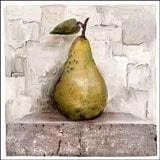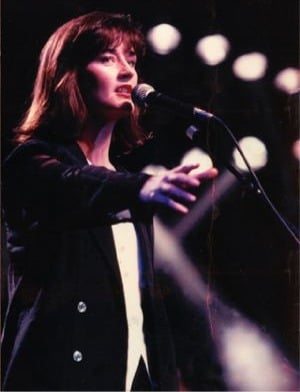Progarchives.com has always (since 2002) relied on banners ads to cover web hosting fees and all.
Please consider supporting us by giving monthly PayPal donations and help keep PA fast-loading and ad-free forever.
/PAlogo_v2.gif) |
|
Post Reply 
|
| Author | ||
video vertigo 
Forum Senior Member 
Joined: September 17 2004 Location: United States Status: Offline Points: 1930 |
 Topic: the fugue thread Topic: the fugue threadPosted: October 31 2006 at 03:29 |
|
|
I really enjoy fugue's the only modern fugue I know is in D Minor from Egg's debut. I'm looking for suggestions on modern Fugue's (and your favorite not so modern if you choose) along the same line as Egg's (or not)
So fire away with fugue suggestions praise or anything fugue related |
||
|
"The rock and roll business is pretty absurd, but the world of serious music is much worse." - Zappa
|
||
 |
||
Atavachron 
Special Collaborator 

Honorary Collaborator Joined: September 30 2006 Location: Pearland Status: Offline Points: 64353 |
 Posted: October 31 2006 at 03:54 Posted: October 31 2006 at 03:54 |
|
|
All the Bach fugues are terrific of course-- they're available in box sets or separately. Fascinating listening, they influenced minimalism.
Edited by Atavachron - October 31 2006 at 03:57 |
||
 |
||
fuxi 
Prog Reviewer 
Joined: March 08 2006 Location: United Kingdom Status: Offline Points: 2459 |
 Posted: October 31 2006 at 05:20 Posted: October 31 2006 at 05:20 |
|
|
Probably the greatest fugues of all time can be found in J.S. Bach's set of 48 preludes & fugues, a.k.a. THE WELL-TEMPERED CLAVIER.
Believe it or not but Rick Wakeman turned me on to harpsichord, and if you like this instrument, there's a great bargain set of the 48 by Kenneth Gilbert on Deutsche Grammophon. If you prefer the piano, there's a set by the Canadian player Angela Hewitt on Hyperion. Whichever performance you go for, you're probably going to love this astonishing music for the rest of your life! In prog, Patrick Moraz plays a rather lovely Bachian minimoog solo on 'To Be Over' (RELAYER). There are also fugues on FOCUS III (by Focus) and on E.L.P.'s TRILOGY album. |
||
 |
||
Firepuck 
Forum Senior Member 
Joined: February 28 2006 Location: Canada Status: Offline Points: 657 |
 Posted: October 31 2006 at 09:48 Posted: October 31 2006 at 09:48 |
|
|
My musical knowledge is minimal, my musical education non-existant. I'm a "I know what I like' fan of music.
But I always thought that Gentle Giant used counterpoint in their music, are not the vocals in 'On Reflection' (for example) in this vein?
|
||
|
Kryten : "'Pub'? Ah yes, A meeting place where humans attempt to achieve advanced states of mental incompetence by the repeated consumption of fermented vegetable drinks."
|
||
 |
||
Someo Therguy 
Forum Senior Member 
Joined: November 30 2005 Location: United States Status: Offline Points: 274 |
 Posted: October 31 2006 at 12:16 Posted: October 31 2006 at 12:16 |
|
|
I'm kind of a fugue freak myself. Here's an interesting link:
http://michaelpetiford.com/FugueForDrumset.html |
||
 |
||
Progressive?? 
Forum Groupie 
Joined: August 04 2006 Location: Chile Status: Offline Points: 93 |
 Posted: October 31 2006 at 19:12 Posted: October 31 2006 at 19:12 |
|
|
I'm a musical ignorant just as Firepuck.
if someone could please tell me whata a fugue is and how to distinguish them, I'd be grateful
|
||
 |
||
video vertigo 
Forum Senior Member 
Joined: September 17 2004 Location: United States Status: Offline Points: 1930 |
 Posted: October 31 2006 at 19:47 Posted: October 31 2006 at 19:47 |
|
|
A fugue is like a round, one part starts then another until 4 or 5 parts are being played simultaneously. Bach did fugue's on the organ starting with his hand then his other hand then his feet playing 4 parts simultaneously
|
||
|
"The rock and roll business is pretty absurd, but the world of serious music is much worse." - Zappa
|
||
 |
||
The T 
Special Collaborator 

Honorary Collaborator Joined: October 16 2006 Location: FL, USA Status: Offline Points: 17493 |
 Posted: October 31 2006 at 21:32 Posted: October 31 2006 at 21:32 |
|
|
Well, I know a little bit for I've heard classical music all my life. The maximum art of the counterpoint is expressed in Johann Sebastian Bach's fuges BAR NONE. Try first with the organ-solo toccatta and fuges (like the famous in D minor or in C "Dorica"). Then go the the orchestral overtures that open his orchestral suites: after the introduction they always develop into a magnificent fugue. (Number 2 in b minor is my favorite). Then go to Bach's masses, mainly the Mass in B minor: the choral fugue in the Kyrie is nothing short of monumental. Off course listen also to the Well tempered Clavier fugues, and, finally, into THE ART OF THE FUGUE, Bach's final work and the crowning masterpiece of the art of counterpoint and of craftmanship and science in music. But don't leave out Beethoven Missa Solemnis fugue, or the little one that triumphantly and marvelously closes Mozart's Symphony 41 in C, "Jupiter". Also try Bruckner notr so much for fugues but for counterpoint. If you explore classical mucis, you will find that ancient art form in composers of any period, but you'll have to know what a fugue is to recognize it. In rock, well, fugues just don;t work.
|
||
 |
||
The T 
Special Collaborator 

Honorary Collaborator Joined: October 16 2006 Location: FL, USA Status: Offline Points: 17493 |
 Posted: October 31 2006 at 21:41 Posted: October 31 2006 at 21:41 |
|
|
Oh, sorry, a fugue is a musical form based on counterpoint, which is the climax of harmony, the vertical dimension of music (as melody is the horizontal): how two or more instruments can sound at the same time, there you have harmony, if each one plays different melodic lines but together they sound harmonic, that's counterpoint (explained in the least possible terms, only to get the point across). Fuge is a form that is ;like this (again, poorly explained): a melody is played by an instrument in a particular key; at any given point during that melody's discourse, usually when its exposition ends, another melody, very similar in essence (if it'sthe same is a CANON), starts, in another instrument and key, WHILE THE FIRST INSTRUMENT CONTINUES PLAYING ITS MELODIC LINE. And after that, many more voices (instruments) can enter the scene so you have 2, 3, 4 way poliphony. Bach, music greatest mastr of all time in all forms, made fugues for more than 5 voices. Check the Art of Fugue, where the closing one (incomplete due to the master blindness and death) is a fugue at 6 voices, and all of the melodic lines either inverted, augmented, etc.
|
||
 |
||
cuncuna 
Forum Senior Member 
Joined: March 29 2005 Location: Chile Status: Offline Points: 4318 |
 Posted: November 01 2006 at 00:10 Posted: November 01 2006 at 00:10 |
|
Ok. 4 parts. Hand #1 can handle a full melody. Hand #2 can also handle a full melody. Feet, I gues they can both handle a melody... so... I have read that Bach was a gifted musician. Melody #4 and your descriptioin has suddenly given a new meaning to this. |
||
|
ĦBeware of the Bee!
|
||
 |
||
video vertigo 
Forum Senior Member 
Joined: September 17 2004 Location: United States Status: Offline Points: 1930 |
 Posted: November 01 2006 at 00:48 Posted: November 01 2006 at 00:48 |
|
the organ as he played it is a complicated instrument, I've seen videos of a man playing fugues by bach and every finger is used constantly. Its difficult to describe you should watch several can be found on youtube here's one: a good fugue video this video also explains what a fugue is while it is played. Edited by video vertigo - November 01 2006 at 00:53 |
||
|
"The rock and roll business is pretty absurd, but the world of serious music is much worse." - Zappa
|
||
 |
||
Someo Therguy 
Forum Senior Member 
Joined: November 30 2005 Location: United States Status: Offline Points: 274 |
 Posted: November 01 2006 at 10:06 Posted: November 01 2006 at 10:06 |
|
The hands can actually carry more than one melody each. It only takes one finger to play a melody. One hand can play two melodies by adjusting the intervals and rhythm between the five fingers. I think one or the most amazing things about Bach is that he was renowned for his ability to improvise 4 and 5 voice fugues. Edited by Someo Therguy - November 01 2006 at 10:53 |
||
 |
||
Someo Therguy 
Forum Senior Member 
Joined: November 30 2005 Location: United States Status: Offline Points: 274 |
 Posted: November 01 2006 at 10:35 Posted: November 01 2006 at 10:35 |
|
Actually there is no reason why a fugue would not work in rock. Listen to the intricate counterpoint by Gentle Giant in a song like "Knots", or the Spock's Beard song "Gibberish". While these are not fugues it is apparent that a fugal structure could work beautifully as a rock song. Heck, it works in pop. The opening number in the pop musical Guys And Dolls is a simple three part fugue and it works beautifully (it's called "Fugue For Tinhorns"). Edited by Someo Therguy - November 01 2006 at 10:52 |
||
 |
||
The T 
Special Collaborator 

Honorary Collaborator Joined: October 16 2006 Location: FL, USA Status: Offline Points: 17493 |
 Posted: November 01 2006 at 21:36 Posted: November 01 2006 at 21:36 |
|
|
You may be right. But I say, to get to know the fugue, listen to one by the greatest master of all time (in all of music).
And, yes, let's remember Bach's Art of Fugue has fugues in 4 voices, and those were composed with the clavicembalo (harpsichord) in mind.... off course there are versions like that one by Academy of St. Martin in the Fields with an orchestral arrangement, and that works because if played in one instrument (other than the organ), there could be difficulties trying to follow each melody line.
Yes, each foot can play a melody in the organ. Remember, organ players like those of legendary fame like Bach, Bruckner, Franck or Saint Saens were actually capable of accomplishing that feat (well, every organ player has to learn), to play melody lines with each feet and each hand. The great thing about the pipe organ is the hundreds of sounds it can produce thanks to the valves and pipes system.
And let's point out: the term fugue comes from fuga, which in english would be...flight? escape? (like from prison).... that gives you an idea of the music, because it actually seems there's melodies RUNNING AWAY from others, hence the term FUGUE (easier to understand it when you speak a latin language like italian, spanish, etc.)
Any music genre can have fugues, the musical dimension will be different, off course. But even bands like Spock's Beard attempt a kind of fugue (though it last like two measures, but, hey, those 10 seconds there is a fugue!) in their latest album, octane.
|
||
 |
||
Someo Therguy 
Forum Senior Member 
Joined: November 30 2005 Location: United States Status: Offline Points: 274 |
 Posted: November 02 2006 at 14:53 Posted: November 02 2006 at 14:53 |
|
|
I agree Mr. T, if you want to know fugue there is no better source than J.S. Bach.
Bach and others did wonderfull things with fugues on the organ and other keyboard instruments, but the technique works just as well for any polyphonic intrument or polyphinic setting. For instance there are wonderfull choral fugal passages in Handel's Messiah, as well as Hayden's string quartets (Op, 20 movement IV is a fugue). Don't forget Beethoven's Grosse Fugue, Op. 133, a 16 minute fugue for string quartet. Beethoven's Fifth is a double fugue for orchestra. I also have Bach's Art of Fugue arranged for small chamber ensembles by the Amsterdam Bach Soloists. One really cool version of Bach's Tocata and Fugue in D minor was recorded by the Chapman Stick player Bob Culbertson, it's on his CD Acoustick Dawn. Also, if you follow the link in my earlier post in this thread you can see how it can work on a drumet! Yes, the term fugue comes from the Latin fuga which means to flee. Keep in mind that the basis for the fugue is actually the concept known as canonic imitaion. Canon is latin for rule, or law. The simplest form of canonic imitation is a round, like row-row-row your boat. fugues start out like a round but then the individual voices seperate and start applying variations to the original musical theme. For this reason it's sometimes thought of like a musical conversation rather than a chase. What you hear in Spock's Beard and other rock bands is usually canonic imitation or just counterpoint. Technically, you need more than a few measure to qualify as a fugue. You have to have an Exposition, with two or more voices entering sequentially, followed by a Development, where variations and other elements are explored. Fun stuff. |
||
 |
||
lucas 
Special Collaborator 

Honorary Collaborator Joined: February 06 2004 Location: France Status: Offline Points: 8138 |
 Posted: November 02 2006 at 17:30 Posted: November 02 2006 at 17:30 |
|
Well, have tou heard "suite fugue" the Kevin Gilbert tribute to GG on his masterpiece 'the shaming of the true' ?
|
||
|
"Magma was the very first gothic rock band" (Didier Lockwood)
|
||
 |
||
The T 
Special Collaborator 

Honorary Collaborator Joined: October 16 2006 Location: FL, USA Status: Offline Points: 17493 |
 Posted: November 02 2006 at 18:44 Posted: November 02 2006 at 18:44 |
|
Well, no, I'll do it then.
And great explanation, I forgot to talk about the development and how at one point every melody takes his own course. Probably it's a valid argument: we can't have a fugue in just a few measures. Canonic imitatio is the word, literal yuxtapost repetition. The best known (almost vulgar, but it's marvelous anyway) example is the Canon in D by Pachelbel. Try it, then try a fugue, and you'll discover the difference.
|
||
 |
||
Paul Stump 
Forum Groupie 
Joined: September 28 2006 Status: Offline Points: 43 |
 Posted: November 02 2006 at 19:09 Posted: November 02 2006 at 19:09 |
|
|
Super thread. I think there is a quadruple fugue in the last part of Charades, by The Enid, from Touch Me (1979). Based on Bruckner's 9th - the scherzo, I think. Me, I think it's just an ordinary fugue, or a double at best. ;)
|
||
 |
||
fuxi 
Prog Reviewer 
Joined: March 08 2006 Location: United Kingdom Status: Offline Points: 2459 |
 Posted: November 12 2006 at 05:15 Posted: November 12 2006 at 05:15 |
|
|
Last night I listened to Gentle Giant's FREE HAND for the first time in a long while, and I suddenly heard the fugue-to-end-all-fugues, at least as far as prog is concerned: it's the second track on the album, entitled 'On Reflection', and it's both vocal and instrumental. For more details, see the review of the album that I just put up.

|
||
 |
||
fuxi 
Prog Reviewer 
Joined: March 08 2006 Location: United Kingdom Status: Offline Points: 2459 |
 Posted: November 12 2006 at 05:20 Posted: November 12 2006 at 05:20 |
|
So yes, that's definitely a fugue! P.S. Edward Macan's fascinating study ROCKING THE CLASSICS - ENGLISH PROGRESSIVE ROCK AND THE COUNTERCULTURE (1997) also lists the seventh movement of Renaissance's 'Scheherazade', which I'm not familiar with (on p.50, which is all about counterpoint and fugue). |
||
 |
||
Post Reply 
|
|
| Forum Jump | Forum Permissions  You cannot post new topics in this forum You cannot reply to topics in this forum You cannot delete your posts in this forum You cannot edit your posts in this forum You cannot create polls in this forum You cannot vote in polls in this forum |